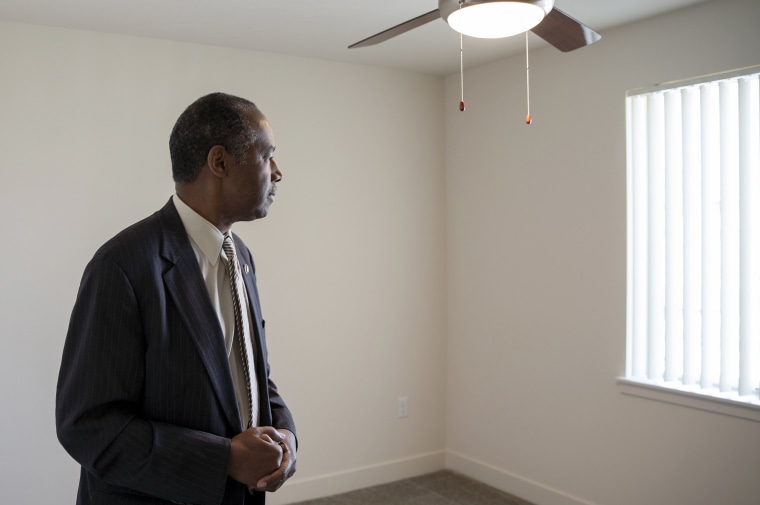The U.S. Department of Housing and Urban Development has taken a step toward tougher health and safety inspections of taxpayer-subsidized housing, amid recent reports of substandard living conditions at the properties.
The agency said it would provide landlords only 14 days' advance notice that it would be conducting an inspection, rather than a heads-up of up to three or four months. The agency described its decision as a “dramatic” change that would discourage cosmetic, last-minute repairs to housing for low-income Americans, according to a press release issued Wednesday.
The department first floated the idea of tightening the inspection notification window in a meeting with industry stakeholders in late November, two weeks after NBC News published an investigation into the broken inspection process.
“It’s become painfully clear to us that too many public housing authorities and private landlords whom we contract with were using the weeks before their inspection to make quick fixes, essentially gaming the system,” Housing and Urban Development Secretary Ben Carson said in the press statement Wednesday.
If a property owner or agent refuses a scheduled inspection, the property will automatically get a score of zero, according to the notice detailing the change. A failed inspection is supposed to prompt swift enforcement action by the department, which can conduct follow-up assessments, impose fines or cancel contracts with delinquent landlords, among other steps.
The department's move is part of its broader overhaul of the inspection system that federal officials acknowledge is "broken." The agency said it will hold a series of “listening sessions” in Philadelphia; Fort Worth, Texas; Atlanta; Detroit and Seattle to assist that reform effort, and additional changes may follow.
NBC's investigation uncovered HUD properties that passed inspection despite decrepit living conditions. It found that in some cases, the department had failed to take prompt action against negligent landlords.
In the agency's November meeting with stakeholders, the agency proposed a seven-day notification window for landlords, but industry groups pushed back strongly against the idea.
The Public Housing Authorities Directors Association, which represents housing officials, said the newly announced 14-day window still went too far. “It is unworkable,” said Tim Kaiser, the group’s executive director, arguing that the change would unfairly burden property managers.
Kaiser said the department's move failed to address the bigger problems that were driving poor living conditions in its housing: a chronic lack of funding, which makes it difficult to conduct basic repairs and maintenance, as well as what he described as a flawed, “very subjective” inspection tool that does not accurately assess housing conditions.
Diane Yentel, president and CEO of the National Low Income Housing Coalition, which advocates for affordable housing, said she welcomed the department's effort to overhaul its inspection system, but she said that bigger reforms and more funding were sorely needed.
“After eight months of hints, buildup and tough talk from HUD on the big changes coming to REAC, an announcement of a series of listening sessions is disappointing,” Yentel said, referring to the department’s Real Estate Assessment Center, which conducts the inspections. “What have they been doing all this time?"

